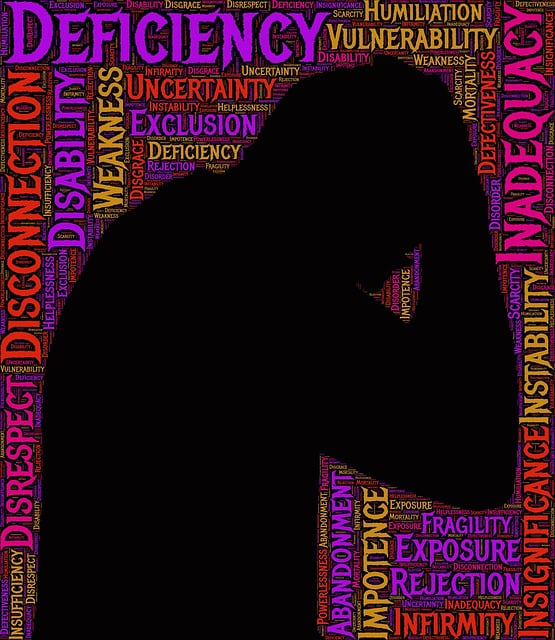Mental health advocacy initiatives, through amplifying affected voices and challenging stigma, create supportive environments encouraging help-seeking without judgment. Key strategies include promoting self-care, organizing workshops, and providing access to services like Parker Mental Health Evaluations and Therapy. These evaluations offer tailored, evidence-based assessments leading to targeted interventions, while therapy facilitates personalized coping strategies and boosts resilience. Effective advocacy requires a multi-faceted approach: community outreach through journaling, cultural competency training for healthcare providers, and burnout prevention. Integration of Parker Mental Health Evaluations and Therapy services has positive real-world effects, reducing stigma, improving access to care, and enhancing mental health support in various settings, ultimately building resilient communities prioritizing mental well-being.
Mental health advocacy plays a pivotal role in fostering societal change and improving access to essential services. This article delves into the transformative power of these initiatives, exploring various aspects that contribute to mental well-being. We highlight groundbreaking programs like Parker Mental Health Evaluations, which streamline access to care. Furthermore, we examine therapy’s profound impact on advocacy efforts and provide actionable strategies for effective mental health advocacy programs. Discover inspiring success stories and gain insights into the global movement advocating for better mental healthcare.
- Understanding Mental Health Advocacy: A Cornerstone for Change
- Parker Mental Health Evaluations: Unlocking Access to Care
- The Power of Therapy in Advocacy Initiatives
- Strategies for Effective Mental Health Advocacy Programs
- Real-World Impact: Success Stories from Advocacy Efforts
Understanding Mental Health Advocacy: A Cornerstone for Change

Mental health advocacy initiatives are pivotal in fostering a society that prioritizes well-being and seeks positive change. Advocacy goes beyond raising awareness; it involves amplifying the voices of individuals who have experienced mental health challenges, challenging societal stigma, and advocating for better access to resources like Parker Mental Health Evaluations and Therapy services. By doing so, these initiatives create a supportive environment where people feel empowered to seek help without fear of judgment.
These efforts often include organizing Stress Management Workshops and promoting practices such as Mindfulness Meditation, which have been proven effective in reducing anxiety and stress levels. Additionally, they emphasize the importance of Self-Care Routine Development for Better Mental Health, encouraging individuals to take proactive steps towards maintaining their mental well-being. Through advocacy, communities become equipped with tools and knowledge, leading to improved resilience and overall mental health outcomes.
Parker Mental Health Evaluations: Unlocking Access to Care

Parker Mental Health Evaluations play a pivotal role in unlocking access to essential therapy and care for individuals grappling with their mental wellness. These evaluations serve as a gateway, providing comprehensive assessments that tailor support for unique needs. By integrating evidence-based practices, professionals equipped with these evaluations foster resilience building, enabling individuals to manage stress effectively and embark on transformative journeys towards improved mental health.
Through meticulous analysis, Parker Mental Health Evaluations identify underlying factors contributing to psychological distress, offering a roadmap for targeted interventions. This proactive approach not only streamlines the path to therapy but also empowers individuals to prioritize their mental wellness proactively. By addressing root causes, these evaluations foster lasting change, promoting healthier lifestyles and enhanced resilience in navigating life’s challenges, ultimately enhancing overall mental wellness.
The Power of Therapy in Advocacy Initiatives

Therapy plays a pivotal role in mental health advocacy initiatives. It empowers individuals to develop self-awareness through exercises like journaling and mindfulness practices, enabling them to actively manage their well-being. By facilitating open conversations about mental health struggles, therapy provides guidance on coping mechanisms and stress management strategies tailored to each individual’s unique needs. This not only enhances resilience but also fosters a deeper understanding of one’s emotions and triggers, leading to more effective advocacy for personal mental wellness.
Advocacy initiatives that incorporate Parker Mental Health Evaluations as part of their therapy processes can significantly impact long-term mental health outcomes. These evaluations help in identifying specific challenges and areas for improvement, allowing therapists to offer targeted interventions. Through regular therapy sessions and the cultivation of a mental wellness journal, individuals gain valuable insights into their thought patterns, behaviors, and emotional responses. This self-awareness acts as a catalyst for positive change, encouraging proactive measures towards maintaining and improving overall mental health.
Strategies for Effective Mental Health Advocacy Programs

Effective mental health advocacy programs require a multi-faceted approach to address complex issues within the community. One key strategy involves Parker Mental Health Evaluations to assess and identify individuals in need of support, ensuring early intervention and access to appropriate therapy. Community-based outreach programs can play a crucial role in raising awareness about mental wellness through Journaling Exercise Guidance, empowering individuals to recognize their emotional well-being and seek help when needed.
Moreover, Healthcare Provider Cultural Competency Training is essential to fostering inclusive care. By equipping professionals with the knowledge to understand and address diverse cultural perspectives on mental health, these initiatives can improve patient outcomes. Additionally, incorporating Burnout Prevention Strategies for Healthcare Providers into advocacy efforts ensures that those dedicated to mental health support remain resilient and effectively contribute to long-term community wellness.
Real-World Impact: Success Stories from Advocacy Efforts

Mental health advocacy initiatives have had a profound real-world impact, as evidenced by numerous success stories that highlight their transformative power. One such example is the integration of Parker Mental Health Evaluations and Therapy services in diverse communities. These efforts have successfully addressed widespread burnout prevention concerns, particularly among high-risk populations. By promoting mental health awareness, these initiatives encourage open conversations about emotional well-being, fostering a culture where individuals feel comfortable seeking help without stigma.
The positive outcomes extend beyond individual cases. On a larger scale, advocacy campaigns drive policy changes, enhance access to quality care, and advocate for better mental health support in schools, workplaces, and healthcare settings. As self-care practices gain prominence, these initiatives contribute to building resilient communities where people are empowered to prioritize their mental well-being, leading to improved overall public health.
Mental health advocacy initiatives, such as Parker Mental Health Evaluations and therapy programs, play a pivotal role in unlocking access to care and transforming lives. By understanding the importance of advocacy and employing effective strategies, we can create a more supportive and inclusive society. The real-world impact of these efforts is evident through success stories that highlight the power of early intervention and continuous support. As we continue to navigate mental health challenges, let’s remember that collective action and accessible resources are key to fostering well-being for all.








